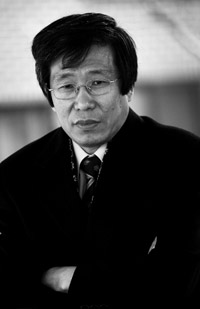 by Kim Seong-kon, Professor of English Language and Literature
by Kim Seong-kon, Professor of English Language and Literature When asked in the 1950s,"How long do you think we have to wait to see a black American president?" the famous Nobel laureate William Faulkner replied,"Not until two or three hundred years from now, I presume." As a Southern writer who had ample opportunities to witness racial discrimination and segregation, the Mississippian writer seemed right at the time.
Obviously, Faulkner turned out to be wrong. In 2008, the American people elected an African-American named Barack Obama as the 44th president of the United States, only 44 years after the Civil Rights Act was launched. If still alive, Faulkner would wonder,"What on earth brought about this radical change in American society?" In the eyes of conservatives, the Obama phenomenon was surely an enigma. To liberals, it was a miraculous, astonishing event that inspired them greatly.
Of course, Americans' disillusion with the Bush administration was a decisive factor. But few people would deny that it was the power of education that enabled Obama to win the elections. Since the 1960s, liberal parents in America have taught their children to be free from racial prejudice. School teachers, too, have constantly taught students the dream of Martin Luther King Jr. who preached,"I have a dream that my four little children will one day live in a nation where they will not be judged by the color of their skin, but by the content of their character."
The outcome is spectacular. America has produced a whole new generation that is not tainted by the bias and bigotry of racism. It was these young people who passionately supported Obama during the presidential campaign and did not hesitate to cast a vote for the black candidate.
Watching Obama win the elections by a wide margin, many people must have remembered the famous phrase of Martin Luther King, Jr.:"I have a dream that one day on the red hills of Georgia the sons of former slaves and the sons of former slave owners will be able to sit down together at a table of brotherhood." Although Obama is a mixed-race man, not a son of former slaves, King's dream has come true, albeit partially. At last, the time for reconciliation has come to a country where racism has long been a fateful burden.
Indeed, Obama is an emblem of the success of an education system that emphasizes freedom, equality, justice and human integrity. It is education that brought forth the radical change in consciousness in American society, fostering a generation that refuses to inherit the dark legacy of racial prejudice.
On the contrary, we cannot but worry about Korean education that has been chronically plagued by two outstanding factors: college entrance exams and radical political ideology. It is lamentable that obtaining high scores on the college entrance exams has long become the ultimate goal of our secondary school education. Everything else takes a backseat. Even liberal education is regarded as something extravagant, if not irrelevant.
Under the circumstances, fellow classmates are rivals one must defeat on the battlefield of college entrance exams. Meanwhile, college students are preoccupied with scoring high on employment exams to secure a decent job.
Another factor that seriously undermines our education is the negative influence of militant teachers who pour Marxist ideology into the malleable minds of our naive students in order to use them for political gain. They betray the ethics of an educator, manipulate young students and brainwash them to become slaves hopelessly chained to ultra-nationalism, blind patriotism and belligerent socialism. It is well-known that these ideologically charged teachers preach that globalism is nothing but a conspiracy by the United States to dominate the world, capitalism is so corrupt that we need a socialist revolution, and ultra-nationalism is the only option, which will save us from American imperialism.
The result of such distorted education is disheartening. A questionnaire recently conducted by the Korea Military Academy for its incoming cadets asked:"Who is our primary enemy?" Surprisingly, 34 percent of incoming freshmen answered that the United States is our main enemy, whereas only 33 percent replied"North Korea." A recent newspaper report revealed appalling news that unnerves us; in a survey that asked about the Korean War, 35.1 percent of 1,955 elementary students answered that South Korea, not North Korea, started the war. Alas! This is the present reality we now confront. Our education has been producing narrow-minded, parochial jingoists who seriously lack global perspectives.
We cannot underestimate the power of education. Education in the right direction can bring forth positive social change, while erroneous education leads to grave consequences. It is urgent to prevent our nation's education from going in the wrong direction. South Korea's future depends on it.
January 14, 2009

